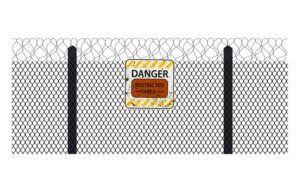 Donald Trump is a foe of prison reform. It’s not surprising. The president’s track record for keeping promises on critical social issues regularly washes away those promises like footprints on the seashore. Consider the foul record on his key campaign speeches—affordable healthcare for all, tax reform for the middle class, and economic recovery (jobs, jobs, jobs)—as examples of Trump’s governance misfeasance.
Donald Trump is a foe of prison reform. It’s not surprising. The president’s track record for keeping promises on critical social issues regularly washes away those promises like footprints on the seashore. Consider the foul record on his key campaign speeches—affordable healthcare for all, tax reform for the middle class, and economic recovery (jobs, jobs, jobs)—as examples of Trump’s governance misfeasance.
A president who will lie to voters about—excuse the expression—making America great again, proclaiming he has a good brain and knows more about everything than anyone, is bound to get caught up in belligerent governing tactics that will hurt the country and eventually destroy his presidency. He’s taking the country down his slippery, narcissistically greased ego slope. A guy like this could not give a whit about prison reform—unless there’s a buck to be made.
This blog post is about Trump’s resurrection of private prisons in the federal prison system. It’s about an executive order hell created by a president bankrupt of feelings for other human beings. How could a president who supports a healthcare philosophy that says that “being a woman is a chronic medical condition and a liability” care about humane conditions in federal prisons? Right—he doesn’t.
Background
In my post Held Captive for Profit, I discussed the greed-driven workings of for-profit prisons in state and federal prison systems. Examples of horrible abuse to juveniles, including fatal medical neglect and sexual abuse, (not to exclude adults, minorities, and immigration detainees) held in so-called private (for profit) prisons have been documented by the press.
Short-Lived Relief
In August 2016, the Obama administration announced its plan to phase out for-profit federal prisons. According to an August 18, 2016, memo written by Deputy Attorney General Sally Yates (who was later fired by President Trump for her refusal to support his Muslim travel ban), “They [private prisons] simply do not provide the same level of correctional services, programs, and resources; they do not save substantially on costs; and as noted in a recent report by the Department’ s Office of Inspector General, they do not maintain the same level of safety and security.”
Yates’s memo concludes with this directive:
For all these reasons, l am eager to enlist your [the acting director of the Federal Bureau of Prisons’] help in beginning the process of reducing—and ultimately ending—our use of privately operated prisons. As you know, all of the Bureau’s existing contracts with private prison companies are term-limited and subject to renewal or termination. I am directing that, as each contract reaches the end of its term, the Bureau should either decline to renew that contract or substantially reduce its scope in a manner consistent with law and the overall decline of the Bureau’s inmate population.
Case in Point
In a May 25, 2017, article, the New York Times reported about a lawsuit filed by the family of a man who died in a for-profit prison on the Texas-Arkansas border. The inmate, Michael Sabbie, had a long medical history involving heart disease, high blood pressure, and asthma. According to the article, Sabbie’s pleas for medical attention went unheeded by the prison staff. The federal lawsuit against the private prison alleges, among other claims, that Sabbie’s pleas for help and statements of “I can’t breathe” were ignored by the staff. The suit contends that ignoring Sabbie’s pleas amounted to “‘deliberate indifference’ to his health and ignored obvious signs of his declining condition.”
The safety and security of Mr. Sabbie were compromised. In her memo, with its underlying concerns for inmates such as Sabbie, Yates underscores her rationale for phasing out private prisons. She was on the right track, for the right reasons.
Derailed by Trump
A February 2017 editorial in the New York Times discussed Attorney General Jeff Sessions’s reversal of an Obama administration order to the Department of Justice (DOJ) to phase out the government’s use of private prisons. The commentary calls this reversal “indefensible given the track record of private prisons.”
I agree with the Times’s commentary about the DOJ’s reversal. During the 2016 presidential campaign, according to the same New York Times commentary, Trump is quoted as saying “I do think we can do a lot of privatizations and private prisons.”
The Huffington Post reported that in August 2016 when the Obama administration announced that the DOJ would phase out the use of private prisons for federal detention, the decision sent private prison stocks on a rapid decline. Those stocks continued to fall after Hillary Clinton reiterated her opposition to private prisons during the first presidential debate.
The day after the 2016 election, the stock values of the nation’s largest private prison company soared 43 percent—a boon for investors and a nightmare for inmates in private prisons.
I’d like to hear your thoughts on for-profit prisons.
Image courtesy of 123rf